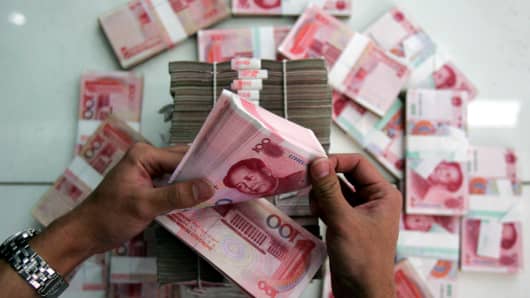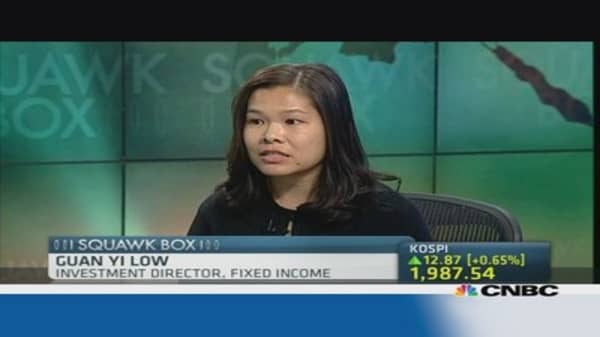HSBC's funds were short Indian bonds, but they are beginning to cover their positions, Lunt said. He may begin looking at entering India's sovereign bonds, he said, as yields have risen and the rupee has devalued amid the recent market turmoil.
"It's difficult to say if now is the exact right time, but there is good value," Lunt said, noting a significant base of short positions in the market, with the potential for a sharp countertrend.
Within India's credit market, the bank tends to concentrate on the higher quality end, he said. This limits the sector selection to generally large industrial conglomerates and large financial institutions, as few Indian companies have a rating higher than the country's relatively low sovereign rating, he said.
(Read more: Foreign currency bonds no panacea for India deficit)
But HSBC has been short on Indonesian bonds and the rupiah for some time, with the recent drop in the currency a "crystallization" of the bank's expectations.
"Indonesia is a fine economy," Lunt said, but it is a victim of its own success, as its openness to foreign investment means funds can sometimes flow out quickly and its strong consumer demand means it will likely continue to post a current account deficit, keeping its currency weak.
In addition, Indonesian bond yields have fallen dramatically over the past five to ten years. "The market may have gone too much, too quickly."
(Read more: We're ready for exit of QE flows: Indonesia official)
Despite markets' calmer tone this week, some investors remain bearish on Asia's high-yield bonds. Morgan Stanley cut its view on the segment to underweight.
"Slower growth, tighter credit availability and already leveraged balance sheets could make the months ahead feel like a recession for some corporates," Morgan Stanley said in a recent report, adding it expects more defaults and greater supply.
It advised moving up in quality, believing investors won't need to sacrifice returns. It suggested looking at long-dated investment grade rather than short-dated high-yield bonds, among other strategies.
(Read more: The 3 reasons everyone is dead wrong about bonds)
To be sure, Moody's doesn't expect the high-yield segment's defaults to be significant. In a report today, it cut its forecasted default rate for high-yield non-financial corporates for Asia-Pacific ex-Japan to 1.6 percent from the 2 percent forecast it issued in February – translating into one or two potential defaults for all of 2013.




